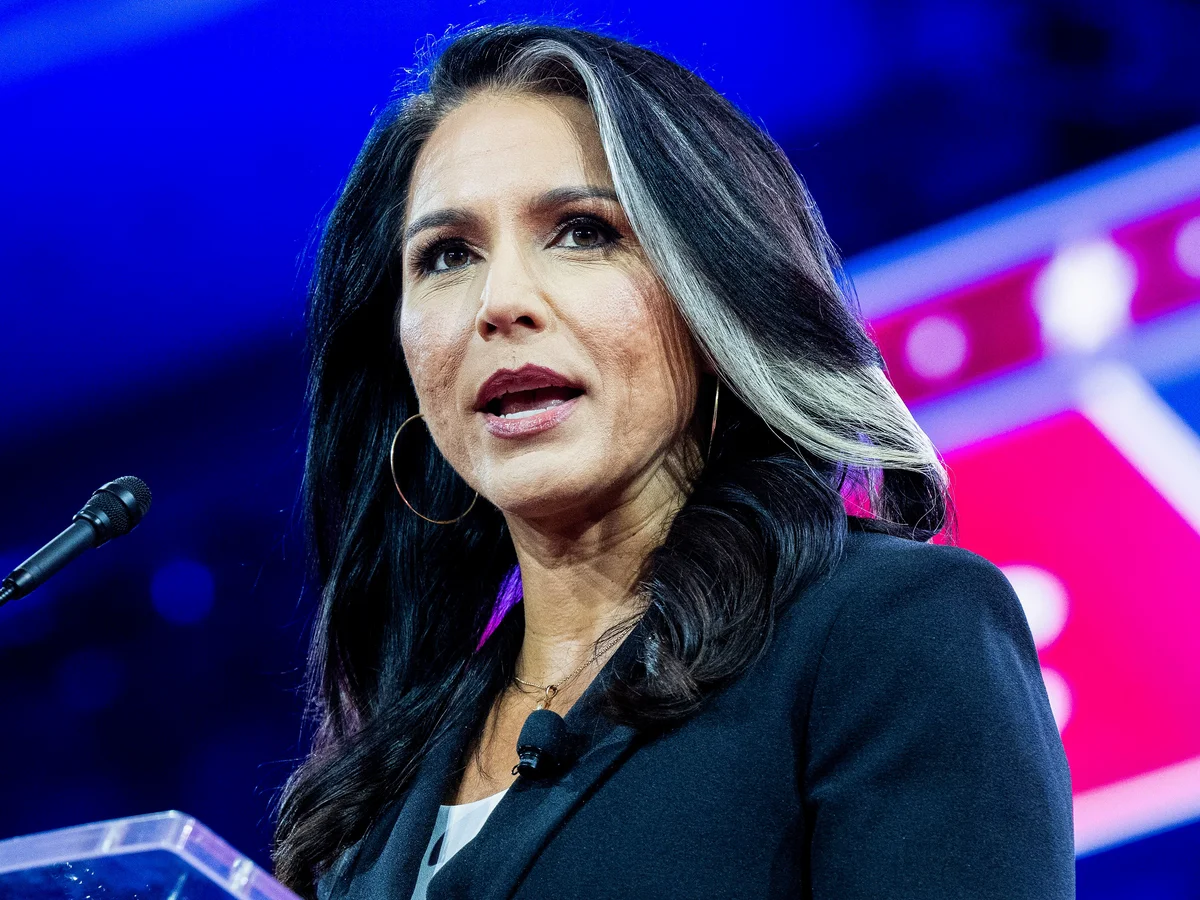October 22, 2024
The US Congresswoman Tulsi Gabbard, one of the most prominent American politicians to exit the Democratic Party in 2022, on Tuesday officially joined the Republican Party. Gabbard, who represented Hawaii as a Democrat for nearly a decade, made the announcement during a rally in Greensboro, North Carolina, where she appeared alongside former President Donald Trump.
The move reflects an escalating trend in which retired Democrats, disillusioned with their party’s radicalization, are taking their place alongside Trump’s Republicanism, which many describe as more populist and focused on “America First” policies.
Gabbard’s Shift and Criticism of the Democratic Party
Gabbard, a 2020 Democratic presidential hopeful, had always criticized her former party, particularly its establishment. Throughout her speech to the crowd, she credited Trump with turning the Republican Party back toward the common man and away from the globalist, interventionist stances she accuses Democrats of taking.
“To those of you here or those watching at home who are independent-minded people like myself, who love our country and are committed to the Constitution and to freedom, the Democratic Party has no home for people like us,” Gabbard said. “But we do have a home in the Republican Party where we are welcomed with open arms by President Trump.”
Gabbard continued: “I’m proud to stand here with you today, President Trump, and announce that I’m joining the Republican Party.”
Trump later addressing the crowd, surprised Gabbard’s announcement saying, “I didn’t know Tulsi had decided to join the GOP. That was a surprise. It’s a great thing, a great honor.”
A Broader Shift: Discontent With the Democratic Party
Gabbard’s defection speaks to a larger trend in US politics where former Democrats find themselves becoming increasingly alienated by their party’s current path. Gabbard, who once described herself as a moderate progressive on healthcare and climate change, was increasingly hostile to the Democratic Party on foreign policy, free speech and the “weaponization” of identity politics.
She joined the Republican Party, too, in response to a growing perception among some Democrats that the party is becoming too identity-political, losing sight of working-class and middle-class Americans. In her presidential campaign, Gabbard repeatedly emphasized her opposition to U.S. military action abroad and her party’s failure to look after the nation’s interests.
That is in line with the more recent anxiety from other prominent Democrats about the direction of the party. Figures like former Democratic Robert F. Kennedy Jr has also parted ways with the party. Kennedy, who abandoned an independent run in August, went public on Trump’s behalf — one more sign that many well-known Democrats and independents are supporting the former president.
Kennedy, son of former senator Robert F. Kennedy and nephew of President John F. Kennedy, represents a noteworthy defection considering his family’s long dominance in the Democratic Party. His support for Trump sent shockwaves through the ranks of the political establishment, with many taking it as a sign that they didn’t like the way the current Democratic administration was running.
The Radicalization of the Democratic Party
Gabbard’s attack on the Democratic Party mirrors that of more and more former Democrats who think the party has gone too far in its pursuit of progressive policies. That has been most pronounced over the past few years as the Democrats take an increasing liking to policies that encourage government growth, corporate taxes and (in the popular view) excessive government regulation on healthcare, education and immigration.
Gabbard left the party after the election of progressive candidates such as Bernie Sanders and Alexandria Ocasio-Cortez (supporters of Medicare for All and the Green New Deal). Such policies have encouraged a young, progressive voter base, but have also alienated moderate and centrist Democrats who see these policies as either impractical or economic poison.
A primary stumbling block for Gabbard and others has been the Democratic Party’s acceptance of identity politics. Gabbard has fought, in her political career, against policies based on race, gender or sexual orientation rather than merit and the interests of all Americans.
She has not only rejected identity politics, she has also inspired fellow Democrats who believe that their party’s social priorities of gender pronouns and affirmative action lead them to forget the economy, inflation and national security.
A Growing Base for Trump
The Democratic discontent has provided a unique opportunity for Trump and the GOP to attract moderate and independent voters. Trump’s focus on populism, economic nationalism, and opposition to global military intervention has brought a new coalition of voters into the Republican fold. This includes not just former Democrats, but also disillusioned independents and centrist voters who feel left behind by the increasingly polarized political landscape. Trump has been quick to capitalize on this sentiment, often portraying the Democratic Party as out of touch with mainstream America. He has framed the 2024 election as a choice between “radical socialism” and “American freedom,” a message that seems to resonate with many voters who feel left behind by the Democratic Party’s focus on progressive policies.
The emergence of Tulsi Gabbard’s Republican Party membership is another step in this revolution in American politics. And with the progressive Democrats, more moderate and independent voters are becoming integrated into Trump’s Republican Party. Gabbard’s naming ceremony to the GOP reflects many of the Democrats who once did not like the direction of their party, and shows that Democrats are having difficulty with an inclusive coalition.
Since people such as Robert F. Kennedy Jr. and Tulsi Gabbard tipped their hats towards Trump, the Republican Party has become the party of populism, nationalism and economic expansion, and the Democrats are becoming the party of the liberal and communist elite.
This shift could have significant implications for the 2024 election and beyond, as both parties compete for the support of a divided and polarized electorate.
Sources:

